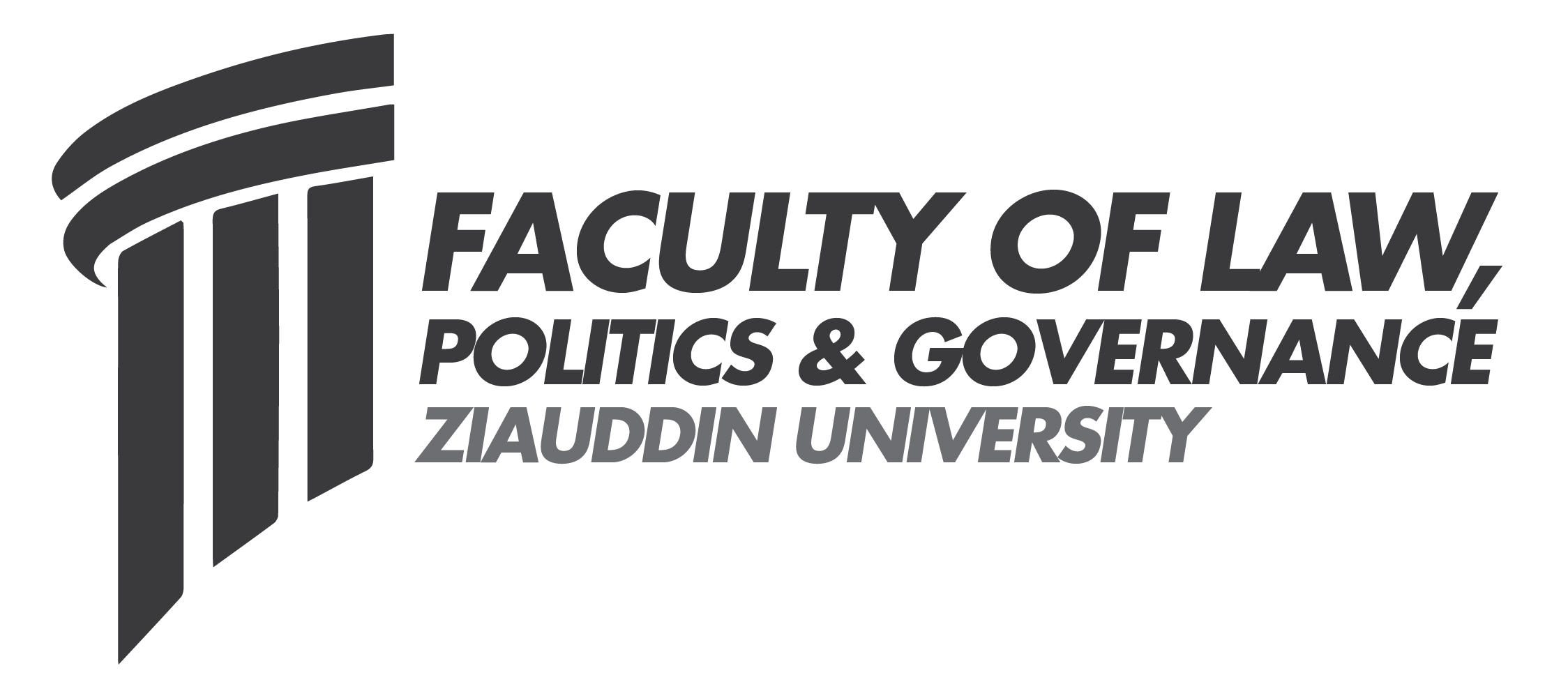Methodology for Centre for Human Rights
All human beings are born with equal and inalienable rights and fundamental freedoms. The United Nations is committed to upholding, promoting and protecting the human rights of every individual. This commitment stems from the United Nations Charter, which reaffirms the faith of the peoples of the world in fundamental human rights and in the dignity and worth of the human person. In the Universal Declaration of Human Rights, the United Nations has stated in clear and simple terms the rights which belong equally to every person. These rights belong to you. They are your rights. Familiarize yourself with them. Help to promote and defend them for yourself as well as for your fellow human beings.
UN Charter 1947
Centre For Human Rights
ZU-CHR located within the Ziauddin Faculty of Law, Politics & Governance, uses law and legal knowledge as an effective tool for promoting and securing human rights. To accomplish this momentous task we have different segments within the center to address the top areas:
- ADVOCACY
- PEACE & CONFLICT STUDIES
- CHILD RIGHTS PROGRAM
- PRISON PROJECT
ADVOCACY
The Advocacy for Human Rights works to create public policy that respects, protects, and fulfills human rights obligations in our home community and around the world.
Our Priorities
Our advocacy priorities are protecting the human rights of asylum seekers, refugees and immigrants; protecting the human rights of women and girls; supporting the work of human rights defenders and working to help incorporate international human rights standard in Pakistan.
Our Strategies
Using international human rights mechanisms, including those of the United Nations, to highlight human rights violations and advocate for policy change;
- Advocating for public policy changes in Pakistan both on a local and national level on multiple platforms: media, talks, seminars, and etc.
- Providing direct legal advocacy in public litigation cases and supporting causes promoting human rights
- Advancing our priorities by working in local, national, and international coalitions.
PEACE & CONFLICT STUDIES
Peace and conflict studies is a social science field that identifies and analyzes violent and nonviolent behaviors as well as the structural mechanisms attending conflicts (including social conflicts), with a view towards understanding those processes which lead to a more desirable human condition.
Our Strategies
- Promotion of Alternative Dispute Resolution particularly Mediation training and workshops
- Conducting field studies to arriving at the heart of common conflicts within the general public in Pakistan – be it local or international
- Regional emphasis on Afghanistan & India peace & conflict studies
- De-radicalization efforts thru engagement with government institutions and NGOs in the promotion peace and dialogue
CHILD RIGHTS PROGRAM
Children are the most vulnerable of all human beings and their protection is the utmost important as they are the future.
At ZU-CHR the Child Rights Program is geared to work with Child Protection Unit government bodies, orphanages, and adoption agencies for the active change and development in policies to enhance children rights.
Our Strategies
- Promoting and advocating the Hague Convention Child protocols
- Working with international adoption agencies and providing training to orphanages to secure children rights within institutions
- Working in the sensitive are of street children and providing solutions protecting their rights
- Conducting studies to tackle child abandonment and mechanisms to prevent trafficking
THE PRISON PROJECT
Prisoner Rights has been a key area within Human Rights often neglected. Giving voice to the voiceless is an important element. Working with NGOs and government institutions to bring appropriate prison reform to enhance prisoner rights and help create a full rehabilitation program
Our Strategies
- Prison Rehabilitation Programs promotion – particularly Bacha Jail
- Legal Aid to pending cases
- Jail visits and inspection reports to influence policy change
- Focusing on international prisoners and their repatriation to their home countries
Half-way house and follow up after release
